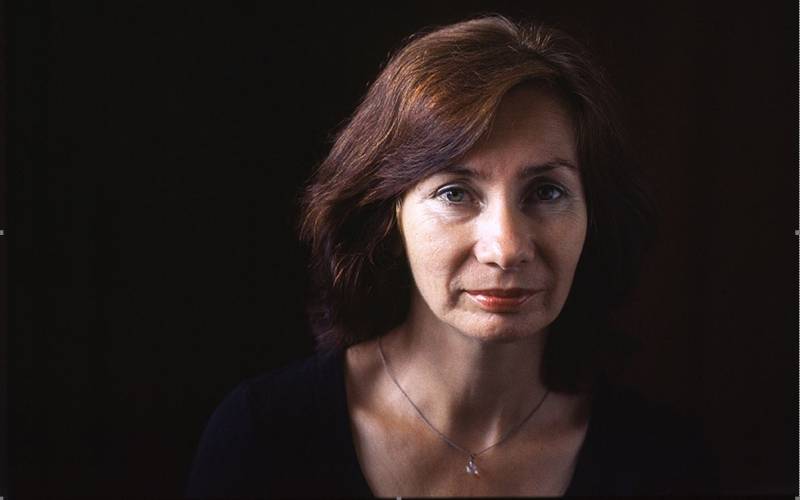
Journalists and activists are increasingly under attack in Pakistan, Al Jazeera said, as women Nobel Peace Prize laureates and winners of the annual Anna Politkovskaya Award in a joint statement wrote that they are "gravely concerned" about human rights activist Gulalai Ismail, who was forced into hiding since she was charged under anti-terrorism legislation and banned from leaving the country last June.
According to Al Jazeera, Human Rights Watch in 2018 said counterterrorism laws continue to be "misused as an instrument of political coercion", including against journalists and activists, and "many defendants are denied the right to a fair trial".
The joint statement was issued in connection with the tenth death anniversary of Chechen journalist and human rights activist Natalia Estemirova who was abducted from her home in Grozny, shot dead and dumped in the neighbouring Ingushetia. No one has been prosecuted for the murder.
Estemirova had been reporting on the torture, disappearances and murders of people in Chechnya, and she knew there was a risk to her life.
Two years earlier, her friend Anna Politkovskaya, a journalist and prominent Kremlin critic, was shot dead in her apartment building in St Petersburg.
"It's never been a more dangerous time to be a journalist and human rights activist," said Sarah Clarke, head of Europe and Central Asia at ARTICLE 19, an NGO defending the freedom of speech.
Threats against journalists are at their highest level in a decade, she said.
Dozens of journalists are killed every year around the world in war zones or countries with weak rule of law, where perpetrators are brought to justice in one out of 10 cases. And female journalists and rights activists face greater threats.
Hostility towards journalists is becoming normalised around the world, amid a global rise of "strongman" populist leaders around the world who routinely demonise journalists, said Clarke.
"With the rise of populism, institutions such as the judiciary, police and investigative bodies, that are supposed to protect journalists, have weakened," she added.
US President Donald Trump calls media "the enemy of the people" and Turkish President Recep Tayyip Erdogan has branded some journalists as "traitors".
This rhetoric is "extremely dangerous because it paves the way for threats and violence which can ultimately lead to assassinations", said Clarke.
But women are not only targeted in conflict zones. In October 2017, Maltese investigative journalist Daphne Caruana Galizia was killed in a car bomb attack. No one has been prosecuted in connection with the attack.
Her death was believed to be connected with her work in exposing Malta’s links with the Panama Papers.
The authors of the joint statement wrote: "The international community appears powerless to prevent the attacks and the killings, and to provide protection and safety to those facing grave danger."
According to Al Jazeera, Human Rights Watch in 2018 said counterterrorism laws continue to be "misused as an instrument of political coercion", including against journalists and activists, and "many defendants are denied the right to a fair trial".
The joint statement was issued in connection with the tenth death anniversary of Chechen journalist and human rights activist Natalia Estemirova who was abducted from her home in Grozny, shot dead and dumped in the neighbouring Ingushetia. No one has been prosecuted for the murder.
Estemirova had been reporting on the torture, disappearances and murders of people in Chechnya, and she knew there was a risk to her life.
Two years earlier, her friend Anna Politkovskaya, a journalist and prominent Kremlin critic, was shot dead in her apartment building in St Petersburg.
"It's never been a more dangerous time to be a journalist and human rights activist," said Sarah Clarke, head of Europe and Central Asia at ARTICLE 19, an NGO defending the freedom of speech.
Threats against journalists are at their highest level in a decade, she said.
Dozens of journalists are killed every year around the world in war zones or countries with weak rule of law, where perpetrators are brought to justice in one out of 10 cases. And female journalists and rights activists face greater threats.
Also read: Modi’s Crackdown On Press Freedom Has ‘Almost Killed Media’, Says Indian Publication
Hostility towards journalists is becoming normalised around the world, amid a global rise of "strongman" populist leaders around the world who routinely demonise journalists, said Clarke.
"With the rise of populism, institutions such as the judiciary, police and investigative bodies, that are supposed to protect journalists, have weakened," she added.
US President Donald Trump calls media "the enemy of the people" and Turkish President Recep Tayyip Erdogan has branded some journalists as "traitors".
This rhetoric is "extremely dangerous because it paves the way for threats and violence which can ultimately lead to assassinations", said Clarke.
Also read: Crackdown On Media In Turkey: Journalists Join Hands To Document Cases Of Colleagues Facing Charges Like Crimes Against The State
But women are not only targeted in conflict zones. In October 2017, Maltese investigative journalist Daphne Caruana Galizia was killed in a car bomb attack. No one has been prosecuted in connection with the attack.
Her death was believed to be connected with her work in exposing Malta’s links with the Panama Papers.
The authors of the joint statement wrote: "The international community appears powerless to prevent the attacks and the killings, and to provide protection and safety to those facing grave danger."
